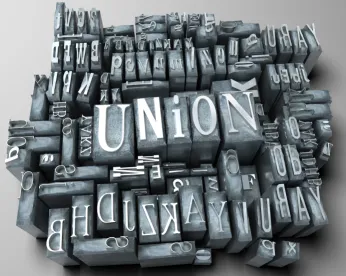On March 1, 2019, in a long-awaited and unsurprising 3-1 decision, the National Labor Relations Board (“Board”) ruled lobbying expenses are not chargeable to employees who work in a union setting and choose not to join or remain a member of the union under the National Labor Relations Act (“NLRA”). See Kent Hospital, 367 NLRB No. 94 (2019). In addition, the Board further held unions must verify to such employees – known as Beck objectors – that financial information disclosed to them has been independently audited.
The case arose in 2009, when several employees of Kent Hospital resigned their memberships with the union and objected to paying union dues for activities unrelated to collective bargaining, contract administration, or grievance adjustment. By letter, the union provided the resigning employees with their new reduced fee amounts, as well as several charts outlining the major categories of expenses spent by the union both internationally and at Kent Hospital locally. The letter further stated that the categories of expenses disclosed therein were verified by a certified public accountant. However, the union did not provide the objectors with the actual verification letter from the auditor because it believed it was not required to do so. Critical to the Board, the union continued to deduct dues from the Beck objectors for lobbying expenses.
Thereafter, the Board’s Acting General Counsel filed unfair labor charges against the union, alleging the union violated Section 8(b)(1)(A) of the NLRA by 1) failing to provide the objectors with evidence “beyond a mere assertion” the financial data the union disclosed was based on an independent audit; and 2) charging the Beck objectors dues it used to fund its lobbying efforts. The Administrative Law Judge dismissed the Acting General Counsel’s charge relating to the audit verification and partially sided with the union relating to its decision to charge the Beck objectors for lobbying expenses. The case was appealed to the Board.
On appeal, the Board first held “private-sector unions subject to the ‘basic considerations of fairness’ inherent in the statutory duty of fair representation are required to provide Beck objectors verification that the financial information disclosed to them has been independently verified by an auditor.” The Board reasoned, since financial information provided to Beck objectors must be independently verified, unions “must take the modest additional step of supplying verification that the provided financial information has been independently verified.”
The Board then discussed whether a union’s lobbying efforts were chargeable to Beck objectors, and concluded they were not. When making its ruling, the Board explained unions may not spend funds collected from Beck objectors on activities “not germane” to its duties relating to collective bargaining, contract administration, or grievance processing. The Board acknowledged, in certain circumstances, a union’s lobbying efforts may touch on workers’ terms and conditions or “incidentally affect” collective bargaining. Even so, the Board held, lobbying efforts are not part and parcel of a union’s duty to bargain collectively, and, thus, Beck objectors cannot be compelled to pay for political lobbying: “Lobbying activity is not a representational function simply because the proposed legislation involves a matter that may also be the subject of collective bargaining.”



 />i
/>i

